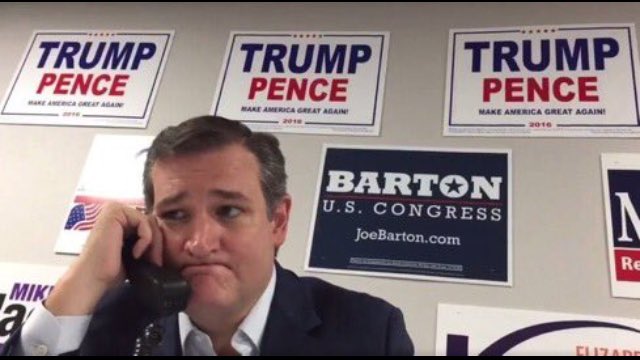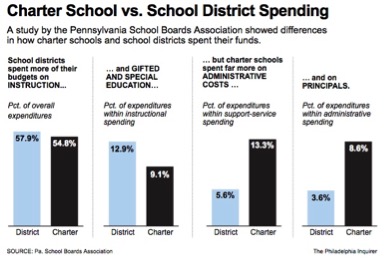That data is all over the place and has been for decades. Private schools rarely outperform public ones, and when they do, the differences between them frequently can be attributed to self selection. As in: charters and private schools tend to attract parents who actually care about their child's education. Private schools also have the luxury of being able to kick out children that don't meet their standards- behavioral, performance, etc. Public schools rarely go for the expulsion route unless we're talking egregious violations bordering on criminal charges.
But to be more specific, Charter schools were started here in Pennsylvania under Tom Ridge, republican governor around 1997ish or so. (Ridge later left the governorship around 01 to work under the GWB administration). Charters were a plan implemented by his administration and the general assembly after an attempt to implement vouchers failed.
Charters if you aren't familiar with them are privately run but publicly financed schools that operate independently within a district. As of this year Pennsylvania has 168 of them, mostly clustered in areas with struggling school systems like Philadelphia and Chester PA.
Nationally, there was a 2013 study that compared charter schools in 26 states and NYC (not including Pennsylvania, for some reason) and what did that study find?
There was a separate report done in 2011 on Pennsylvania specifically that found more or less the same thing:
That data comes from an article Pittsburgh Post gazette composed here
http://www.post-gazette.com/news/state/2013/06/26/Study-Pa-in-bottom-three-for-charter-school-scores/stories/201306260122
Note that Charters have the same advantages that private schools do re: self selection and being able to simply not accept special needs students or those with behavioral problems. Those are simply funneled into the public school system, so "only" 38% of total schools having better performance in reading and 25% of schools having better performance in math than Public schools is pretty terrible.
The Washington Post put together a similar article that goes into this, concentrating on PA specifically:
in aggregate, charter schools performed worse on state standardized test scores than the public schools do.
there is a significant and substantial problem with transparency and accountability in regards to where the money actually goes in regards to charter schools. Charters spend VASTLY more money on administrative expenses than public schools do,
http://articles.philly.com/2016-08-...hools-traditional-public-schools-expenditures
and will fight to keep their books closed to prevent disclosure.
I mentioned before that private schools and charters are permitted to be more selective in their enrollment:
Even with the ability to weed out problem students, those with english as a second language, those in poverty, those with special needs...charters are STILL not outperforming public schools across the board.
Also worth considering:
Charters simply subtract existing funds from school district budgets here to fund themselves. there was no increase in funding to support them. Their existence makes it significantly harder for public schools to exist and has led to closures and layoffs. Moody's cited the existence of charter schools as the #1 problem for solvency of the Philadelphia school district, and the
Chester school district owes more money to charters than it actually brings in per year in taxes.
The things are terrible, and the only reason they exist is because conservatives continue to peddle the fiction that somehow the private sector is better at running education than the public sector is- when all evidence has shown that performance is equivalent or worse, and they're fiscally irresponsible.




